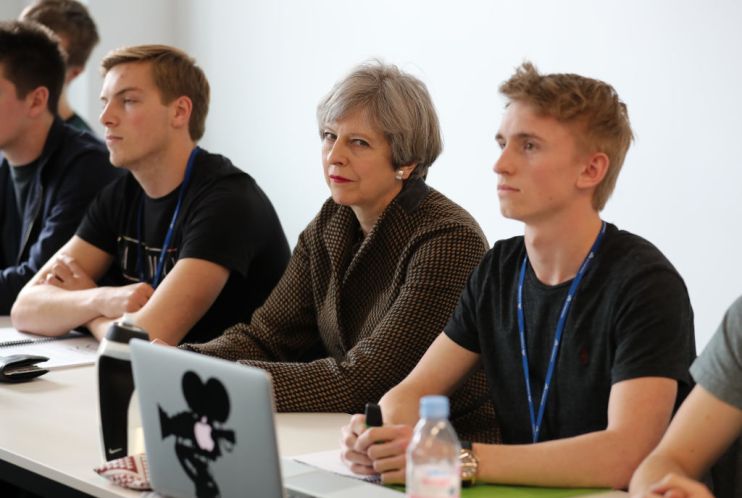Theresa May’s rule change kicked foreign graduates like me out – now Boris is reversing the injustice

It is easy to poke fun at wonks who love public policy.
Digging down into the specific details of the Common Agricultural Policy, stamp duty land tax, or the Swiss healthcare system doesn’t always make for sexy headlines or punchy commentary.
But what the wonks know, which is so often overlooked, is that even if a public policy decision doesn’t make the headlines, it can still have a dramatic impact on people’s lives.
Wednesday’s immigration announcement that the government would allow foreign students to stay in the UK for two years past their graduation date does just that. These students’ lives have been changed, infinitely for the better.
I should know. I was graduating from the University of St Andrews in Scotland in 2012, right when then home secretary Theresa May changed the rules, and kicked me and my fellow foreign graduates out.
I had been in the UK studying since 2008. I wanted to stay here. I wobbled for the first few weeks of my first year, wondering if I had made the wrong choice to move so far from home. But two weeks in, drunkenly eating maltesers and listening to my new British friends try to mimic my accent, I started to get a sense that this new country might be a place I could call home too.
Four years later, like many students approaching graduation day, I had absolutely no idea what I wanted to do. I did know, however, that whatever life I started building for myself, I wanted to start in the UK.
But that wasn’t an option. On 6 April 2012, two months before I graduated, May closed the work visa route which had allowed overseas graduates to work for any employer for up to two years. There was no grandfather clause for those of us so close to the finish line.
According to May, the system was “too generous” to foreign graduates – a strange defence, as those who had stayed in the UK to work couldn’t access public funds and were net contributors to the economy.
The unhealthy obsession with net migration figures led to the decision to kick out young, skilled, UK-trained migrants who were desperate to become future British taxpayers. It was economically nonsensical: foreign students are worth billions to the UK economy, but many international applicants have been turning away because of restrictive post-work policies.
But the real damage took place on a personal level.
I’ve watched some of my brightest, most creative friends jump through impossible hoops, taking financial and personal hits just to be able to stay. Friends who secured great jobs, who fell just below the Tier 2 visa salary threshold, were kicked out of the country.
As for me, I left, spent a year in the US, and eventually made it back. I will forever be grateful to my employers (unsurprisingly libertarian outlets) that went the extra mile to secure me a visa, understanding that increased intervention by the state often leads to worse outcomes for individuals, leaving the private and charity sectors to pick up the slack.
But May’s policy change has affected me every day since 6 April 2012. Having been forced to leave for a significant period of time, the clock reset on my continuous residency. Despite having spent a decade in the UK now (essentially my whole adult life), I am still not eligible for leave to remain, let alone citizenship.
For many of us, our lives have become immersed and grounded in British politics and way of life, but we don’t fully own them. We are totally dependent on our jobs and visa status, without which we have no rights in the UK.
And the kicker is that I am one of the most privileged non-EU immigrants in the UK: I’m from the US, I studied here, I speak English fluently. The problem isn’t that my story is the worst immigration tale you’ll here, but rather that it is one of the best.
The privileged among us struggle, sometimes daily, to secure our life here. Those who aren’t as privileged – minority groups, refugees, economic migrants from developing countries – face home raids, detention, threats from aggressive state actors, and deportation to countries that have never been their home.
Wednesday’s policy announcement is a big step in the right direction, and those in government behind this decision should be widely applauded for making such good and meaningful change in such a short period of time.
But there is one more change that the government can – and should – easily make.
According to the BBC, the reversal of the policy will apply to students “who start courses at undergraduate level or above from next year onwards”, ignoring all the young people who are currently at university, or have just graduated this summer from their courses.
There is no reason that these graduates should need to leave right away, when their peers just a few years younger will have the opportunity to stay.
May’s change to policy affected those at the finish line, and this fantastic reversal should too. Call it sensible policy, call it humane, or call it tinkering at the edges – it has the ability to transform thousands of lives overnight.
Main image credit: Getty